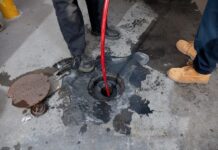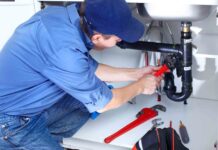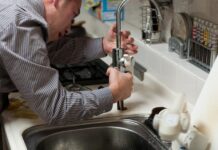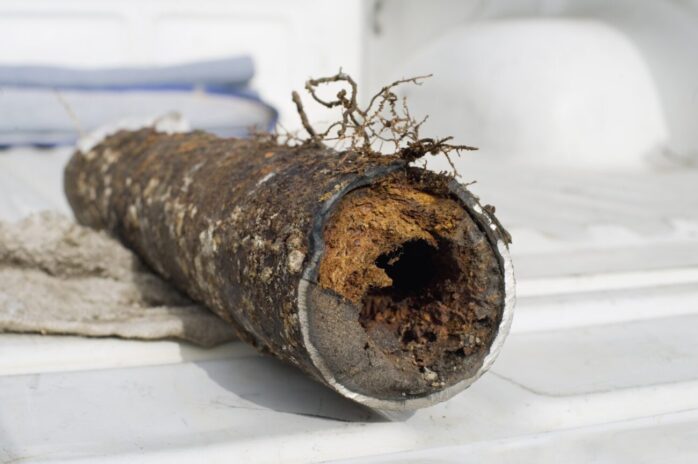
How does your home say “goodbye” to its wastewater? You probably don’t think about it much, but the answer is through your residential sewage system. In this blog, we’re digging into the nitty-gritty of what can go wrong with your sewage system and how you can minimize potential repairs and breakdowns. Join us as we explore the less-than-glamorous side of home maintenance!
Causes of Sewage System Breakdowns
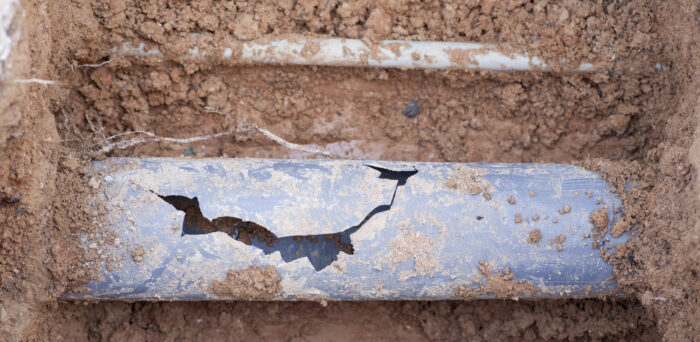
There are a variety of reasons why a sewage system may need repair or experience a breakdown. According to Sidex, high usage and debris can create clogs or blockages in the line, causing backups. Tree root infiltration is another common cause of issues, since roots can find their way into even small cracks in the pipes and create a blockage. Poor soil conditions, structural damage and shifting earth can cause misalignment of the lines, leading to broken or cracked pipes.
Severe weather such as heavy rains or flooding may also lead to sewage system issues due to sediment buildup or water infiltration into the lines beneath your home. Smaller, more preventable problems such as grease from kitchen drains and non-biodegradable items flushed down toilets may gradually build up over time, resulting in blockages throughout your sewage system.
Signs of a Sewage System Breakdown
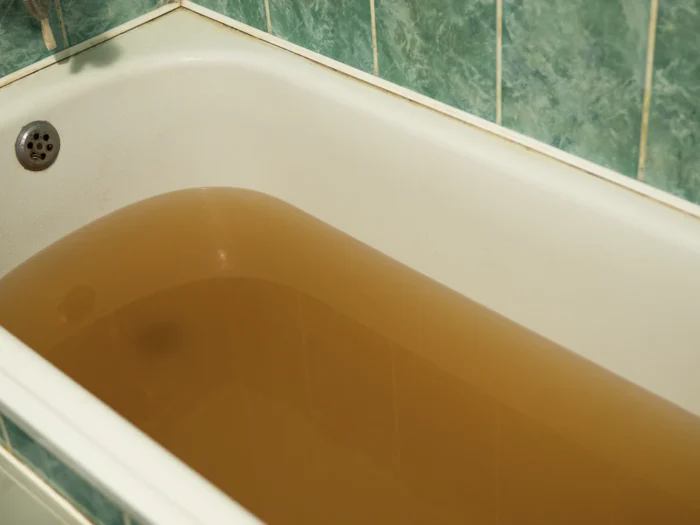
Regular maintenance can go a long way in preventing costly repair bills. Be on the lookout for:
- Strange noises coming from toilets, showers, and other plumbing fixtures
- Slow draining water in sinks and bathtubs
- Unpleasant odors near drains or emanating from bathrooms and kitchens
- Lush patches of grass or other vegetation near septic tanks
- Sewage backups due to blocked sewer lines
- Discolored water coming through pipes
If you notice any of these signs, it’s best to contact a certified technician immediately. They will be able to diagnose the problems and perform necessary repairs. Ignoring signs can cause further damage down the line that may require more extensive repairs or replacement of your whole sewage system. If you take care of any issue quickly, it may be possible to prevent more costly repairs in the future.
Preventative Maintenance
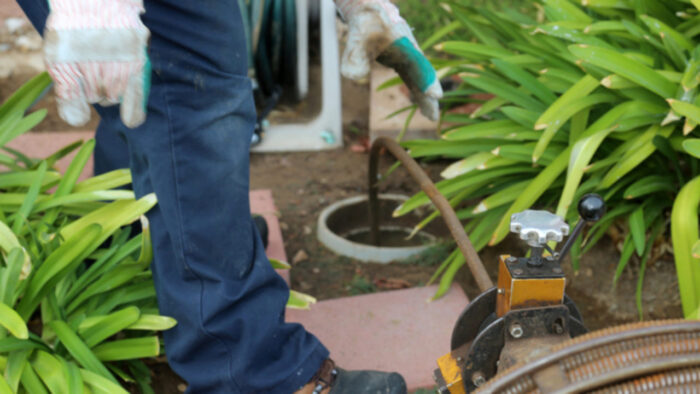
To help prevent costly repairs and breakdowns, regular maintenance and service check-ups are important to have done. By investing in preventative maintenance for your sewage system, you can expect fewer breakdowns, improved functionality and increased savings in the long run.
Cleaning the drains is an effective way to keep this system running smoothly. Clogged drains or slow draining sinks are often caused by build-up of dirt, debris, or other materials that accumulate over time in the pipe systems.
For optimal performance, it’s recommended to clear out built up material every few months. This monthly practice prevents clogs and helps keep the system running efficiently.
Inspecting all piping of the system is also important in avoiding breakdowns and repairs to a sewage system. An inspection by a professional can uncover issues such as low water pressures or irregularly shaped pipes that can cause performance problems. Once any potential issue is identified, further action can be taken depending on what remedies may be available to you.
Lastly, make sure all septic tanks are properly maintained so as not to compromise their capacity for holding wastewater from homes and businesses along with other accumulated materials such as sanitary waste.
It is important that these tanks have perforated lids so water flows freely into them and that you routinely schedule cleanings for them which should include pumping out solid wastes from the tank at least once every three years on average.
By doing all of this preventative maintenance regularly on your sewage systems you will likely benefit from more efficient functioning of the entire plumbing setup including pipes, connectors and tanks throughout your home or business!
Professional Sewage System Repair Services
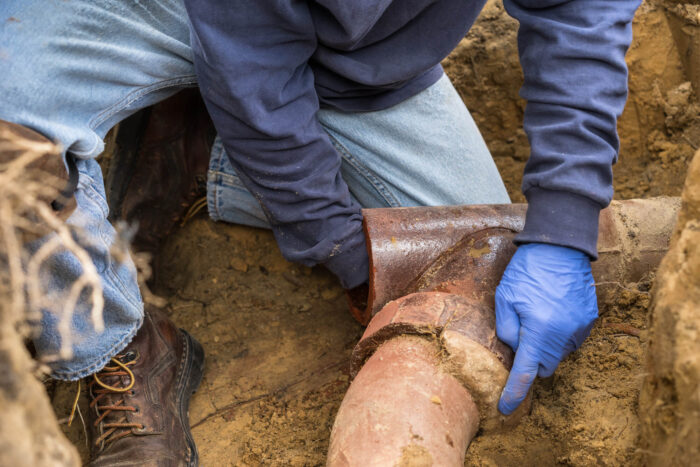
Having to repair or replace it can be a major disruption and expense, so it is important to invest in a professional company to inspect and maintain it. Professional sewage system repair services provide comprehensive evaluations and work to ensure that minor faults become identified and addressed before they turn into crises.
When choosing a service provider, it is important to look for one with years of experience in the field of plumbing, sewer and septic tank services. They should be knowledgeable about local codes and regulations surrounding your unique installation needs as well as have the necessary licenses and qualifications.
Look for companies who have invested in advanced technology such as closed-circuit television crawler systems or air circulation pumps providing inspections of underground pipes for an accurate diagnosis of any problems that may exist within your sewage system.
Professionals with the right experience should be able to diagnose any problem and report on solutions quickly to avoid long-term disruption from an outdated or faulty wastewater management system.
In order to minimize breakdowns in the future, experienced experts will recommend regularly scheduled maintenance activities such as periodic inspections, cleaning out clogged strainers, or checking pressure valve settings. These small investments over time will ensure that your waste disposal system runs smoothly, efficiently, safely and appropriately for years to come.
Conclusion
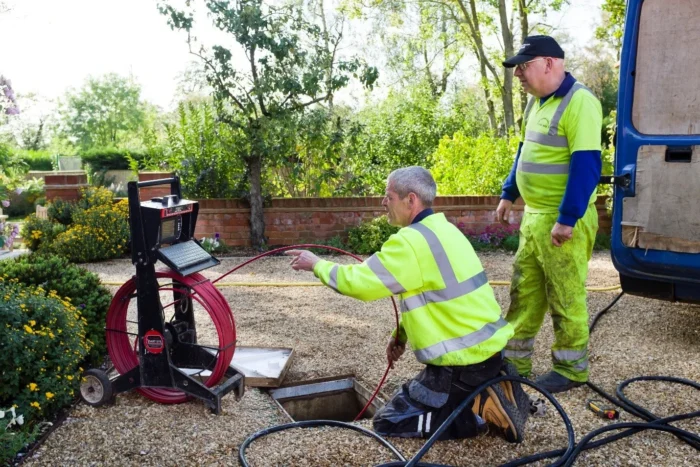
Performing regular maintenance and preventative repairs are key components in keeping your sewage system running optimally. Make sure you stay up-to-date with issues related to the condition of your services, and address any potential problems as soon as they arise.
Take appropriate action when it comes time to clean the pumps, vessels, silts, pressure valves, and any other areas that may be associated with your system. If you are able to spot areas of wear or damage before they cause more serious problems, you can save yourself a great deal of time and money by avoiding major reconstructive operations in the future.
It is also important to limit pooling water around your sewer lines to avoid backflow and overflowing. Don’t forget to check fixtures like sinks, toilets and showers for clogs or leak points. Having an understanding of what is causing a breakdown can make all the difference in how quickly it gets resolved – so staying informed about common sewer issues is always wise.
The best way to keep things running smoothly is by proactively looking out for these potential issues before they cause any actual damage!


